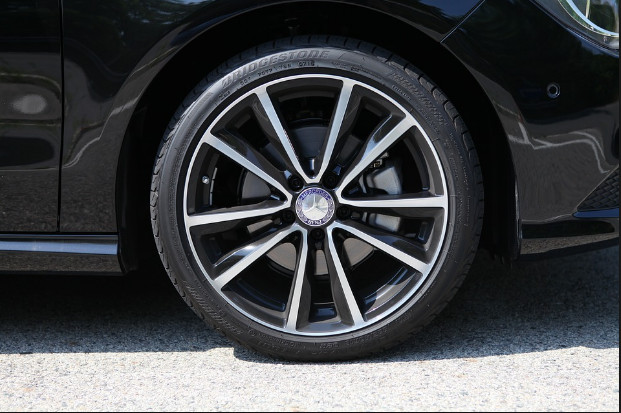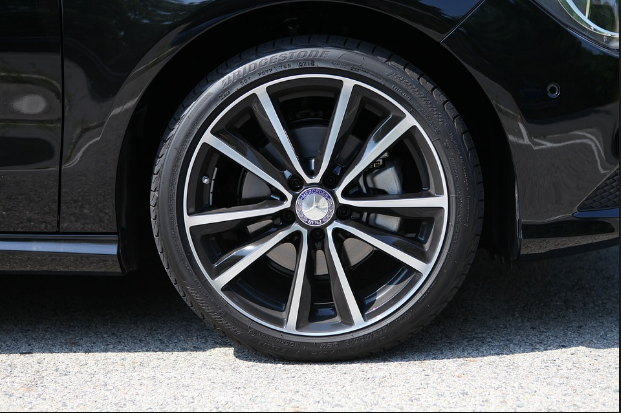
"Sell your diesel while it's still possible" – said Die Welt in the beginning of March, causing a lot of resonance in Germany. Its author urged German diesel car owners to think whether it’s about time to get rid of their vehicles. After all, the "diesel bubble", according to the journalist, "in a year or two will burst with painful consequences" for all those who wish to sell their diesel engines.
The article was written after a sensational decision taken on February 21 by the government of the federal state of Baden-Württemberg headed by representatives of the Green Party. It was decided that all cars with diesel engines that do not meet the strictest Euro-6 environmental standard will be prohibited to enter Stuttgart in 2018 on those days when concentration of suspended particles in the city’s air exceeds the established norms.
Stuttgart is a kind of automobile capital of Germany. In any case, there are headquarters and head factories of two famous German automakers - Daimler and Porsche. And they, like all German automakers, are still equipping a considerable part of produced cars with diesel engines. 42 percent of all Daimler cars sold in Germany in 2016 were diesels. Corresponding figure of BMW amounts to 65 percent.
It is clear that the growing debate about harmfulness of the diesel engines and prediction of declining years of the technology itself pose a huge threat for the German automobile industry. This discussion broke out after the scandal with Volkswagen’s diesel engines, so-called Dieselgate, occurred in 2015.
Emnid sociological institute conducted a survey in early February. The research revealed that 61 percent of the German respondents (66 percent of women and 55 percent of men) approve the ban on use of old diesel cars with particularly harmful emissions in settlements with an unfavorable ecological situation. So there is nothing surprising in the fact that Stuttgart's example is being discussed, in particular, in Berlin, Munich, Dusseldorf and Cologne.
"Diesel has a promising future from the technological point of view", - told Daimler’s Chairman Dieter Zetsche. Therefore, he is against administrative prohibitions, which he considers economically harmful. Speaking to reporters at the Geneva Motor Show on March 7, he stressed that sales of Mercedes cars with diesel engines in Europe have been steadily keeping at about 50 percent since autumn 2015.
However, the latest statistics show that demand is still declining in Germany, the homeland of the diesel engine. Share of cars with diesel engines in the total number of new cars registered by the Federal Automobile Office (KBA) was 45.9 percent by the end of 2016. Already in January the figure fell to 45.1 percent, and in February - 43.4 percent. In the past month, sales volumes compared to February last year decreased by 10.5 percent.
It is unclear whether this trend will continue in the future, yet car dealers are greatly worried. Executive Director of their union Ansgar Klein, told dpa agency in late February that prices for diesel cars "went down by 10-20 percent." Pointing to the decision taken in Stuttgart, he said that "the actual news is clearly affecting the diesel car market."
source: dw.de
The article was written after a sensational decision taken on February 21 by the government of the federal state of Baden-Württemberg headed by representatives of the Green Party. It was decided that all cars with diesel engines that do not meet the strictest Euro-6 environmental standard will be prohibited to enter Stuttgart in 2018 on those days when concentration of suspended particles in the city’s air exceeds the established norms.
Stuttgart is a kind of automobile capital of Germany. In any case, there are headquarters and head factories of two famous German automakers - Daimler and Porsche. And they, like all German automakers, are still equipping a considerable part of produced cars with diesel engines. 42 percent of all Daimler cars sold in Germany in 2016 were diesels. Corresponding figure of BMW amounts to 65 percent.
It is clear that the growing debate about harmfulness of the diesel engines and prediction of declining years of the technology itself pose a huge threat for the German automobile industry. This discussion broke out after the scandal with Volkswagen’s diesel engines, so-called Dieselgate, occurred in 2015.
Emnid sociological institute conducted a survey in early February. The research revealed that 61 percent of the German respondents (66 percent of women and 55 percent of men) approve the ban on use of old diesel cars with particularly harmful emissions in settlements with an unfavorable ecological situation. So there is nothing surprising in the fact that Stuttgart's example is being discussed, in particular, in Berlin, Munich, Dusseldorf and Cologne.
"Diesel has a promising future from the technological point of view", - told Daimler’s Chairman Dieter Zetsche. Therefore, he is against administrative prohibitions, which he considers economically harmful. Speaking to reporters at the Geneva Motor Show on March 7, he stressed that sales of Mercedes cars with diesel engines in Europe have been steadily keeping at about 50 percent since autumn 2015.
However, the latest statistics show that demand is still declining in Germany, the homeland of the diesel engine. Share of cars with diesel engines in the total number of new cars registered by the Federal Automobile Office (KBA) was 45.9 percent by the end of 2016. Already in January the figure fell to 45.1 percent, and in February - 43.4 percent. In the past month, sales volumes compared to February last year decreased by 10.5 percent.
It is unclear whether this trend will continue in the future, yet car dealers are greatly worried. Executive Director of their union Ansgar Klein, told dpa agency in late February that prices for diesel cars "went down by 10-20 percent." Pointing to the decision taken in Stuttgart, he said that "the actual news is clearly affecting the diesel car market."
source: dw.de


















